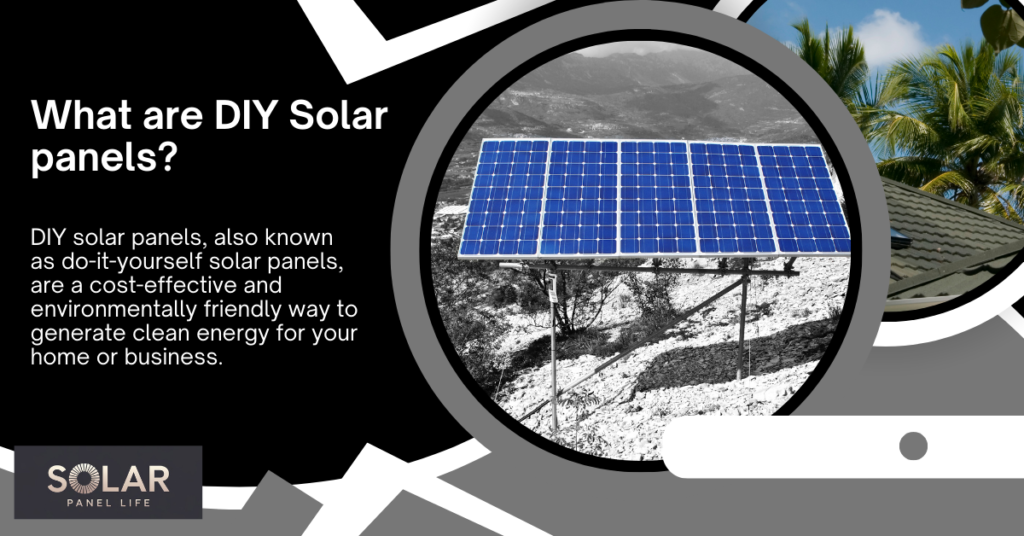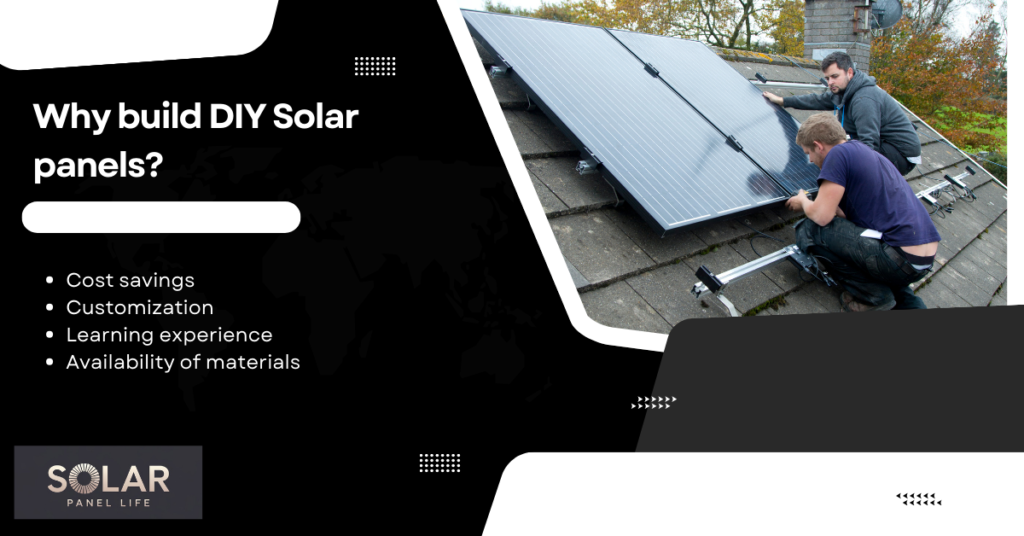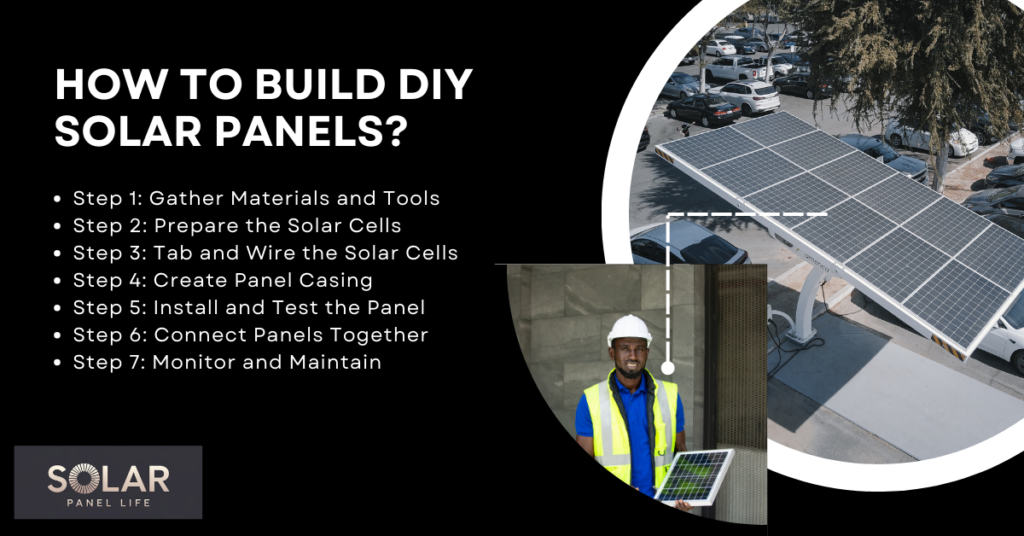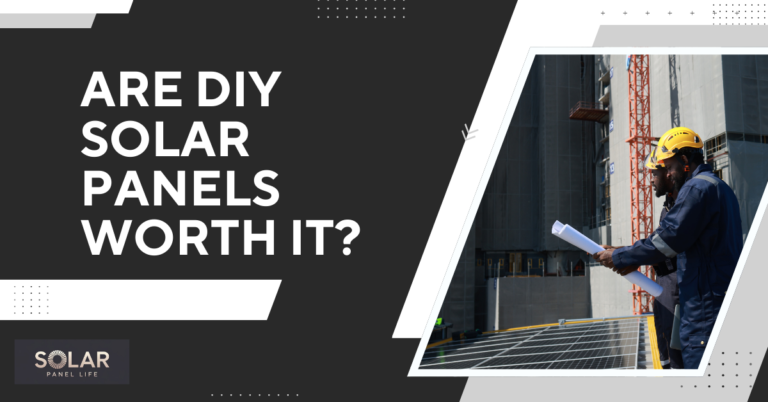In recent years, the popularity of solar energy has been on the rise due to its potential to reduce electricity costs and decrease carbon emissions. As a result, more homeowners are considering installing solar panels on their rooftops in an effort to harness renewable energy and save money in the long run. However, with professional installation costs ranging from $15,000 to $30,000 for an average-sized home, many people are turning to DIY (Do-It-Yourself) options as a more affordable alternative.
The concept of making your own solar panels may seem appealing at first glance – after all, who wouldn’t want to save thousands of dollars by doing it themselves? However, before embarking on a DIY solar panel project, it is crucial to weigh the benefits and drawbacks to determine if it is truly worth the effort. In this article, we will explore the pros and cons of DIY solar panels and provide guidance for those considering taking on this project.
What are DIY Solar panels?
DIY solar panels, also known as do-it-yourself solar panels, are a cost-effective and environmentally friendly way to generate clean energy for your home or business. These solar panels can be built using readily available materials and simple tools, making them accessible to anyone interested in reducing their carbon footprint and saving money on electricity bills.

Why build DIY Solar panels?
There are several compelling reasons for building your own solar panels:
1. Cost savings
One of the main reasons to build DIY solar panels is cost savings. Solar panels can be quite expensive, making them less accessible for many individuals and households. By building your own solar panels, you can significantly reduce the upfront costs and potentially save thousands of dollars in the long run.
2. Customization
Building your own solar panels allows you to customize them according to your specific needs and preferences. You can choose the size, shape, and design of your solar panels based on available space and energy requirements. This level of customization is not possible with commercially produced solar panels.
3. Learning experience
DIY projects are a great way to learn new skills and gain knowledge. Building your own solar panels will require research, planning, and manual labor, providing a hands-on learning experience about renewable energy and electricity production. This can also be a fun and engaging activity for individuals or families to do together.

4. Availability of materials
With the increasing popularity of renewable energy, there is now a wide range of affordable materials available for DIY solar panel projects. From solar cells to wiring and mounting hardware, these materials are easily accessible at local hardware stores or online retailers.
5. Environmentally friendly
Using solar power helps reduce the demand for fossil fuels, which contribute significantly to air pollution and climate change. By building your own solar panels, you are taking a step towards reducing your carbon footprint and promoting sustainability. Additionally, the manufacturing process of commercial solar panels also has a negative impact on the environment, making DIY solar panels a more eco-friendly option.
6. Empowerment
Building your own solar panels gives you control over your energy production, making you less reliant on traditional power sources. This can be empowering for individuals living off-grid or those looking to reduce their dependence on traditional utilities.
7. Potential for income generation
In addition to saving money on electricity bills, building and installing extra solar panels can generate income by selling excess energy back to the grid or through community solar initiatives. This not only reduces your own energy costs but also contributes to the growth of renewable energy in your community.

How to build DIY Solar panels?
Building DIY solar panels may seem daunting at first, but with the right guidance and materials, it can be a relatively simple process. Here are some steps to get started:
Step 1: Gather Materials and Tools
The first step in building DIY solar panels is to gather all the necessary materials and tools. These include:
- Solar cells
- Tabbing wire
- Bus wire
- Flux pen
- Soldering iron and solder
- Plexiglass (for panel casing)
- Silicon adhesive or caulk
- Screwdriver
- Drill
- Wire cutters
- Multimeter
Step 2: Prepare the Solar Cells
Before assembling the solar panels, it’s important to prepare the solar cells. This involves carefully removing them from their packaging and cleaning the surface with a gentle soap solution. It’s also recommended to wear gloves during this process to avoid any damage to the cells.
Step 3: Tab and Wire the Solar Cells
Using the tabbing wire and flux pen, connect each solar cell in a series by soldering them together. This will create a continuous flow of electricity throughout the panel. Then, use bus wire to connect the positive and negative terminals of each cell.
Step 4: Create Panel Casing
Next, using plexiglass or another durable material, create a casing for the solar panel. This will protect the cells from weather and other external factors. Use silicone adhesive or caulk to seal any gaps between the glass and frame.
Step 5: Install and Test the Panel
Using the drill and screwdriver, mount the solar panel onto a stable surface in an area that receives direct sunlight. Then, use a multimeter to test the output of the panel by connecting it to the positive and negative terminals.
Step 6: Connect Panels Together
For larger systems, multiple DIY solar panels can be connected together using additional bus wire. This will increase the overall electricity output.
Step 7: Monitor and Maintain
It’s important to regularly monitor and maintain DIY solar panels to ensure they continue functioning properly. This includes cleaning them occasionally with soap and water, checking for any loose connections or damage, and replacing any worn out parts.
Overall, building DIY solar panels can be a rewarding and cost-effective way to generate electricity. With proper planning and attention to detail, anyone can successfully build their own solar panel system. And with advancements in technology and availability of materials, it’s becoming easier than ever before to harness the power of the sun for sustainable energy production. So why not give it a try and see the benefits for yourself?
The Pros
- Cost Savings
The most obvious advantage of DIY solar panels is the potential for significant cost savings. By purchasing materials and installing the panels yourself, you can cut out the labor costs associated with professional installation. This can potentially save you thousands of dollars in upfront costs.
One of the biggest expenses when it comes to installing solar panels is the labor cost. With DIY options, you have the freedom to choose your own materials and install them at a pace that works for you. You also have control over any additional equipment or tools needed for installation, which can further reduce costs.
- Learn New Skills
Another benefit of taking on a DIY solar panel project is the opportunity to learn new skills and gain knowledge about renewable energy. By doing the project yourself, you will have a better understanding of how solar panels work and how to properly maintain them. This knowledge can be valuable not only for your own home but also in helping others with their own solar panel installations.
- Sense of Accomplishment
There is something satisfying about completing a DIY project and seeing the end result. Building your own solar panels can give you a sense of accomplishment and pride in knowing that you were able to create something useful for your home. It can also serve as a conversation starter when friends and family come over.
- Flexibility and Customization
With DIY solar panels, you have the flexibility to design and customize the system according to your specific needs and preferences. You can choose the type of panels, inverters, and other components that best fit your budget and energy goals. This level of customization is not always possible with professional installation, as they may have limited options or certain brands they prefer to work with.
The Cons
- Safety Concerns
One of the biggest drawbacks of DIY solar panels is the potential safety hazards involved in handling electrical equipment. Solar panels generate electricity from sunlight, which can be dangerous if not handled properly. Improper wiring or installation can lead to electric shocks or fires, putting you and your family at risk.
Additionally, working on a roof can also be hazardous without proper training and safety gear. Falls from roofs are a leading cause of construction-related injuries, and it is important to take all necessary precautions when working at heights.
- Lack of Expertise
While DIY projects can be a great way to learn new skills, not everyone has the expertise or knowledge required for solar panel installation. Installing solar panels involves precise calculations, wiring, and structural considerations that may be beyond the capabilities of someone with no experience in this field. Improper installation can result in reduced energy production and potential damage to your home.
- Limited Warranty Coverage
When you opt for professional solar panel installation, most companies offer warranties on both the equipment and labor involved. However, when it comes to DIY solar panels, there may be limited or no warranty coverage available. This means that if something goes wrong with your system, you will be responsible for any repairs or replacements.
- Time and Effort
Installing solar panels is not a one-day project; it requires patience, time, and effort. From researching the best materials to sourcing them and actually installing the panels, it can be a time-consuming process. For those with busy schedules, this may not be a feasible option.
Is It Worth It?
After weighing the pros and cons of DIY solar panels, it ultimately comes down to personal preference and individual circumstances. If you have the necessary skills and expertise to properly install solar panels, then it can definitely save you money in the long run. However, for those with limited time and resources, it may be worth considering professional installation for peace of mind.
It is also important to remember that solar panels are a long-term investment. While DIY options may save you money upfront, they may not last as long or perform as well as professionally installed systems. It is important to research and compare the quality of materials when making your decision.

